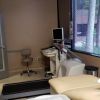Heart Disease Prevention Tips for Seniors: A Comprehensive Guide to Protecting Heart Health
Published on May 06, 2025

Heart Disease Prevention Tips for Seniors: A Comprehensive Guide to Protecting Heart Health
Heart disease is one of the leading causes of illness and death among seniors in the United States. As we age, the risk of heart disease increases due to factors such as high blood pressure, cholesterol, and diabetes. However, by adopting a few simple lifestyle changes, seniors can significantly reduce their risk of heart disease and lead healthier, more active lives. In this article, we will explore essential heart disease prevention tips specifically designed for seniors, providing practical advice and strategies to maintain heart health into old age.
1. Understanding the Risks of Heart Disease for Seniors
Heart disease can take many forms, including coronary artery disease, heart failure, and arrhythmias. For seniors, the risks are heightened due to several factors, many of which are related to the aging process. As we get older, our blood vessels tend to become less flexible, and the walls of the arteries may thicken, making it harder for the heart to pump blood efficiently. Additionally, conditions such as high blood pressure, high cholesterol, and diabetes, which are common in seniors, contribute to the development of heart disease.
It’s important to recognize that heart disease doesn’t just happen overnight; it develops gradually over time, often without noticeable symptoms in the early stages. Therefore, it is crucial for seniors to understand their individual risk factors and take proactive steps to protect their heart health.
Factors that increase the risk of heart disease in seniors include:
- Age: The risk increases as you get older, particularly after age 65.
- High blood pressure: Also known as hypertension, high blood pressure damages the arteries and increases the heart's workload.
- High cholesterol: Elevated cholesterol levels can lead to plaque buildup in the arteries, restricting blood flow to the heart.
- Diabetes: People with diabetes are more likely to develop heart disease due to the effect high blood sugar has on blood vessels.
- Sedentary lifestyle: Lack of physical activity contributes to obesity, high blood pressure, and high cholesterol levels.
Understanding these risks allows seniors to make informed decisions about their health and begin incorporating heart-healthy habits into their daily lives.
2. Maintain a Healthy Diet to Support Heart Health
Diet plays a critical role in preventing heart disease, and it becomes even more important as we age. A healthy diet helps manage weight, blood pressure, cholesterol levels, and blood sugar levels, all of which are crucial in preventing heart disease. Seniors should focus on a balanced, nutrient-rich diet that includes a variety of whole foods.
Key dietary tips for seniors include:
- Increase intake of fruits and vegetables: Aim for at least 5 servings per day. These foods are rich in antioxidants, fiber, and vitamins that promote heart health.
- Choose whole grains: Whole grains such as oats, brown rice, and whole-wheat bread are high in fiber and help regulate cholesterol and blood sugar levels.
- Limit processed foods and saturated fats: Foods high in saturated fats, such as fatty cuts of meat, butter, and fried foods, can raise cholesterol levels and contribute to heart disease. Instead, opt for healthy fats like those found in avocados, nuts, and olive oil.
- Eat lean proteins: Fish, poultry, beans, and legumes are excellent sources of lean protein, which helps maintain muscle mass and supports overall heart health.
- Reduce salt intake: High sodium intake contributes to high blood pressure. Reducing salt and avoiding high-sodium packaged foods can help maintain healthy blood pressure levels.
By focusing on these dietary recommendations, seniors can make significant strides in lowering their risk of heart disease.
3. Stay Active: The Importance of Physical Activity
Regular physical activity is one of the most effective ways to prevent heart disease. Exercise helps lower blood pressure, reduce cholesterol levels, and improve overall cardiovascular health. For seniors, staying active also promotes muscle strength, balance, and flexibility, which are crucial for maintaining independence and preventing falls.
Types of exercise beneficial for heart health include:
- Aerobic exercise: Activities like walking, swimming, cycling, and dancing are excellent for improving cardiovascular health. Aim for at least 150 minutes of moderate aerobic activity per week or 75 minutes of vigorous activity.
- Strength training: Lifting weights or using resistance bands can help seniors build muscle mass, which in turn boosts metabolism and promotes a healthy weight.
- Flexibility exercises: Yoga or stretching routines help seniors maintain flexibility and prevent injury, which is important for overall health and mobility.
It’s important for seniors to start slowly and gradually increase activity levels as tolerated. If a senior has existing health conditions or concerns about exercise, it’s always a good idea to consult with a healthcare provider before starting a new exercise routine.
4. Manage Stress for Better Heart Health
Chronic stress is a significant contributor to heart disease, and seniors are often more vulnerable to stress due to factors such as retirement, the loss of loved ones, or health problems. Stress can lead to high blood pressure, inflammation, and unhealthy coping mechanisms like overeating or smoking, all of which contribute to heart disease.
Stress management techniques for seniors include:
- Mindfulness and meditation: Practices like deep breathing, meditation, and mindfulness can help lower stress levels and promote a sense of calm.
- Socializing and staying connected: Staying engaged with family, friends, and community can help reduce feelings of isolation and promote emotional well-being.
- Hobbies and leisure activities: Pursuing enjoyable hobbies, such as gardening, painting, or reading, can provide a relaxing outlet for stress.
- Physical relaxation techniques: Yoga, tai chi, or even a warm bath can help relax the body and reduce stress.
Seniors should incorporate stress management into their daily routine to improve both mental and physical health.
5. Monitor Health Conditions and Regularly Visit the Doctor
For seniors, managing existing health conditions is essential for preventing heart disease. Regular check-ups with a healthcare provider ensure that blood pressure, cholesterol, and blood sugar levels are under control, which can prevent the development of heart disease or complications.
Key monitoring and healthcare tips include:
- Regular blood pressure checks: High blood pressure is one of the leading causes of heart disease. Seniors should monitor their blood pressure regularly, either at home or during doctor visits.
- Cholesterol and blood sugar monitoring: Seniors should have their cholesterol and blood sugar levels checked regularly. Maintaining healthy levels helps prevent the buildup of plaque in arteries and reduces the risk of heart disease.
- Medications as prescribed: If a healthcare provider prescribes medication for high blood pressure, cholesterol, or diabetes, it’s essential to take these medications as directed to manage these conditions effectively.
Regular check-ups with a primary care provider, as well as communication with specialists, can ensure that seniors maintain optimal health and reduce the risk of heart disease.
6. Quit Smoking and Limit Alcohol Consumption
Smoking is one of the most harmful habits for heart health. It damages blood vessels, increases blood pressure, and raises the risk of heart attacks and strokes. For seniors who smoke, quitting is one of the best steps they can take to improve their heart health.
Tips for quitting smoking:
- Seek support: Many seniors find success in quitting smoking through support groups or counseling. Behavioral therapy and medication can also help reduce cravings.
- Set a quit date: A specific quit date can help seniors stay motivated and focused on their goal.
In addition to quitting smoking, seniors should limit alcohol consumption. Excessive drinking can lead to high blood pressure, heart failure, and liver damage, all of which increase the risk of heart disease. The Centers for Disease Control and Prevention (CDC) recommends no more than one drink per day for women and two drinks per day for men.
7. Conclusion: Protecting Heart Health in Seniors
Heart disease is a significant health concern for seniors, but the good news is that many heart disease risk factors can be managed or even reversed through lifestyle changes. By following heart disease prevention tips like maintaining a healthy diet, staying active, managing stress, and regularly monitoring health conditions, seniors can greatly reduce their risk of heart disease and improve their overall well-being.
It’s never too late to start taking care of your heart. Small changes in daily habits can have a big impact, leading to a healthier, longer life. If you're looking for more information or need help with heart disease prevention, visit HeartCare Hub for expert guidance and resources tailored to seniors.























Deborah Heart and Lung Center
deborah heart and lung center
200 Trenton Rd, Browns Mills, NJ 08015, USA